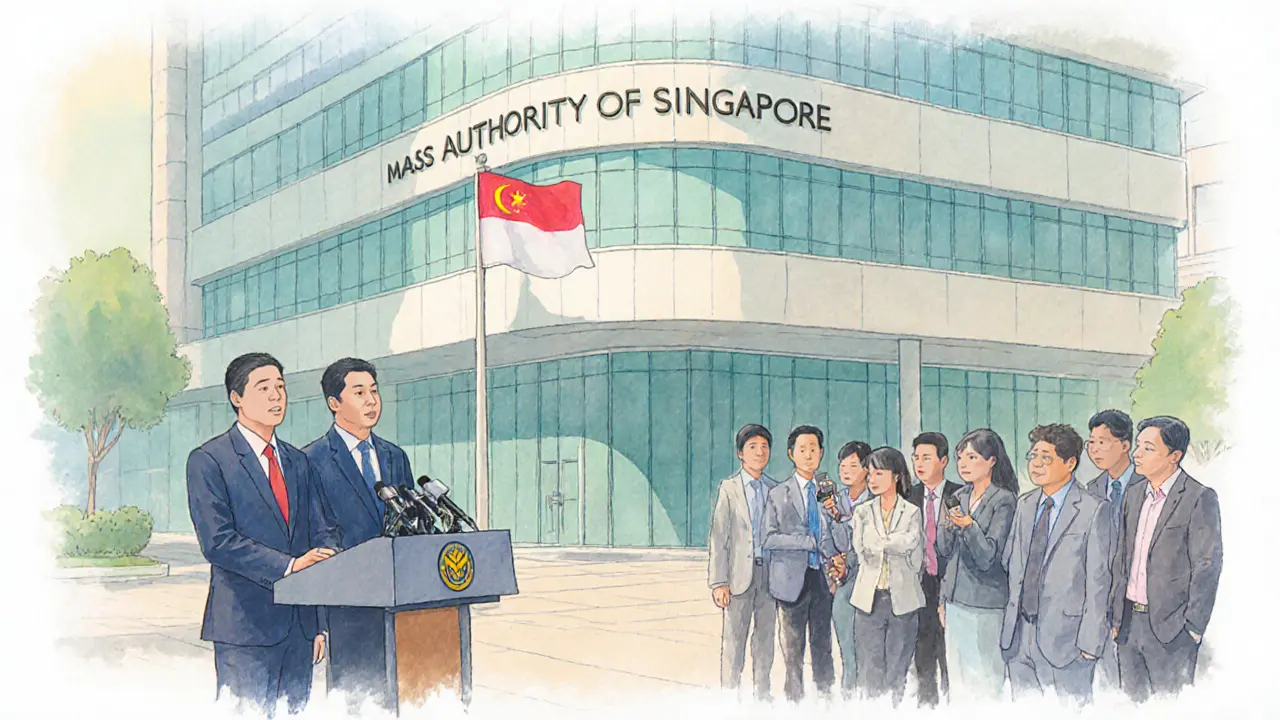Crypto Compliance Singapore: What Every Crypto Business Needs to Know
When navigating Crypto compliance Singapore, the set of laws, licenses and reporting duties that apply to digital‑asset activities in the city‑state. Also known as Singapore crypto regulation, it shapes how exchanges, wallet providers and blockchain projects operate.
At the heart of the framework sits the Monetary Authority of Singapore (MAS), the regulator that issues the Payment Services Act and enforces anti‑money‑laundering standards. MAS requires any Virtual Asset Service Provider (VASP) a company that offers crypto exchange, custody or payment services to obtain a licence, implement robust AML/KYC procedures, and submit regular compliance reports. In practice, this means that a crypto exchange must verify users’ identities, monitor suspicious transactions and keep records for at least five years. Failure to meet these standards can lead to hefty fines or revocation of the licence.
Key Pillars of Singapore’s Crypto Compliance
The compliance landscape breaks down into three main pillars: licensing, anti‑money‑laundering (AML) and tax reporting. First, the VASP licensing process is tiered – a basic licence covers simple wallet services, while a full payment services licence is needed for activities like fiat‑to‑crypto trading. Second, AML/KYC obligations are aligned with the Financial Action Task Force (FATF) recommendations, so businesses must perform customer due diligence, screen against sanctions lists and file suspicious activity reports when thresholds are crossed. Third, the Inland Revenue Authority of Singapore (IRAS) treats crypto gains as taxable income, whether they stem from trading, staking or mining. Accurate record‑keeping of acquisition cost, sale price, and holding period is essential to calculate the correct tax liability.
These pillars don’t exist in isolation. For example, AML compliance the set of policies that prevent illicit fund flows directly influences the licensing review, because MAS evaluates a VASP’s AML framework before granting approval. Similarly, tax reporting depends on transaction data captured by AML systems, making an integrated compliance stack a practical necessity. Companies that invest in a unified compliance platform can automate KYC checks, generate audit‑ready reports for MAS and produce the spreadsheets required by IRAS.
Real‑world examples illustrate how the rules play out. A local exchange that launched in 2022 had to pause its fiat on‑ramp after MAS flagged gaps in its transaction monitoring. After upgrading its AML software and completing a fresh VASP licence application, the service resumed with a stronger compliance posture. On the tax side, a Singapore‑based DeFi protocol that offered staking rewards was audited by IRAS, which confirmed that staking income is taxable as ordinary income, not capital gains. The protocol’s founders now publish a quarterly tax summary for users, reducing the risk of penalties.
If you’re a founder, trader or compliance officer, the collection below will give you the details you need. You’ll find deep dives into MAS’s latest guidance, step‑by‑step VASP licensing checklists, practical AML workflow templates, and tax calculators tailored for Singapore’s rates. Whether you’re launching a new exchange, adding crypto payments to an existing fintech, or simply trying to stay on the right side of the law, these resources break down the complex rules into actionable steps.
Ready to see how the pieces fit together? Scroll down to explore guides on licensing, AML best practices, tax filing, and real‑world case studies that show how businesses succeed under Singapore’s rigorous crypto compliance regime.

MAS tightens Singapore's crypto rules, limiting new DTSP licences, enforcing AML/CFT standards, Travel Rule, and hefty penalties after a June 30, 2025 deadline.
Jonathan Jennings Oct 13, 2025




